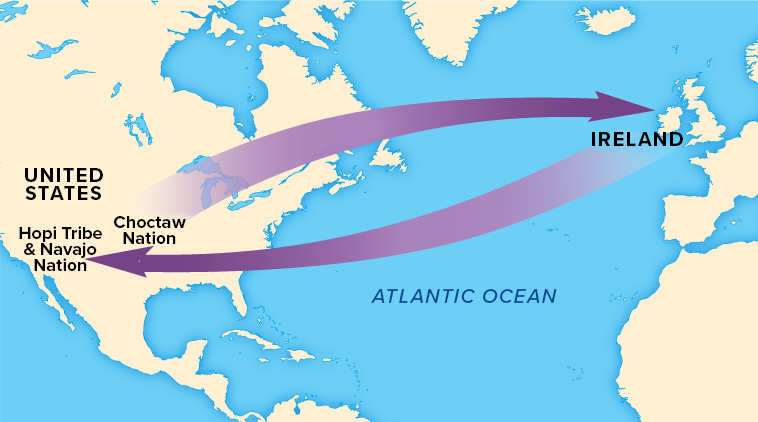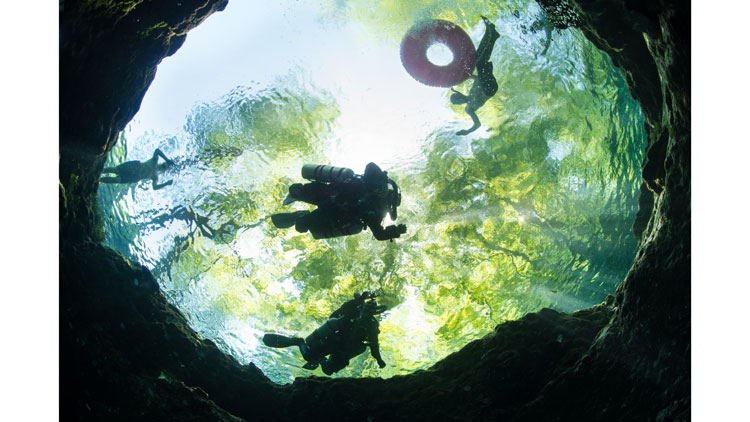
“Ireland remembers.” That is what one message said that came with a donation [money given to help somebody] to the Navajo and Hopi Families COVID-19 Relief Fund. This is an online fundraising site that has gone viral [spread rapidly on the internet] in Ireland. It was one of thousands of donations and messages from that country.
The Navajo and Hopi are Native Americans that are among the groups most affected by the coronavirus pandemic. The large population of elderly people, the lack of running water in many homes, and crowded housing make these groups particularly vulnerable to the coronavirus. The money from the Navajo and Hopi Families COVID-19 Relief Fund will help buy food, water, and other essential items so that people do not have to leave their homes and risk exposure to coronavirus.
Why do the Irish care so much? Many know of a time when Native Americans helped their ancestors. In 1845, potato crops began to fail in Ireland. The Irish people depended heavily on potatoes for their survival. When the crops failed, about one million Irish people starved. This was known as the Irish Potato Famine or the Great Hunger. The Irish needed help, and one source of help came from the Chocktaw people.
The Chocktaw are another group of Native Americans. In 1830, the United States government forced about 17,000 Chocktaws to leave their home in the southeastern United States. They endured a terrible journey to their new lands. The journey was known as the Trail of Tears. Seventeen years later, they were still devastated from their forced resettlement. They had very little. Still, they sent $170—or about $5,000 in today’s money—to help the Irish. That was a lot of money for the Choctaw.
Now, Ireland remembers. In March, the Irish people heard about the Navajo and Hopi Families COVID-19 Relief Fund. They wanted to pay back Native Americans for the kindness shown by the Chocktaw over 170 years ago. Most donations are small—between $5 and $100. By May 20th, the fund had raised over $4 million!
What You Can Do Research charities that are helping Native American groups suffering from COVID-19. Look for ways you can help.



